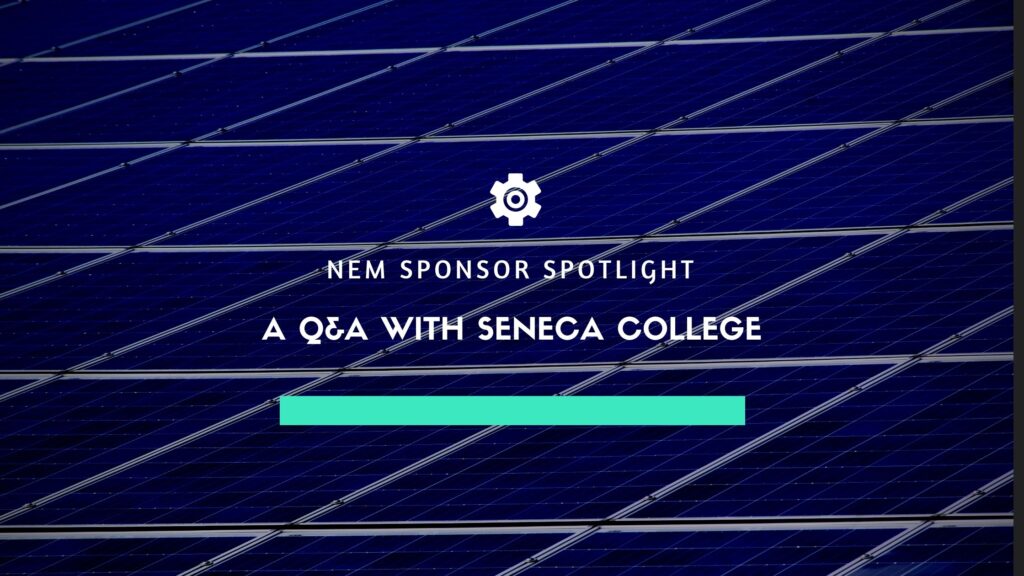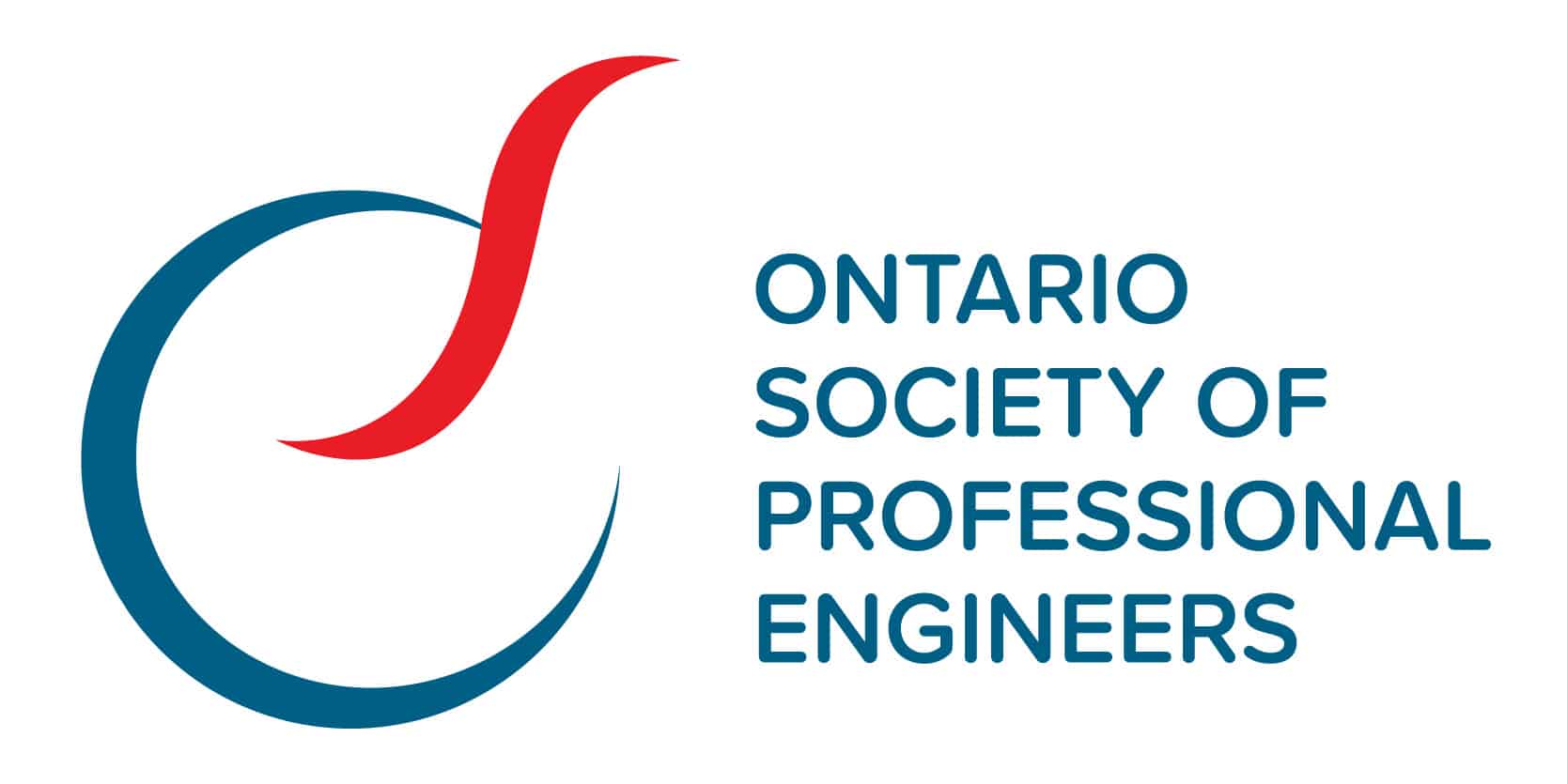
Leading up to National Engineering Month (NEM) 2021, we will be sitting down with educators, regulators and associations within the engineering industry for a question and answer style interview series.
Recently I sat down with Ranjan Bhattacharya, Dean of the Faculty of Applied Science and Engineering Technology (FASET) at Seneca College.
Q: How did you hear about NEM?
A: When I joined the postsecondary system as a faculty member I was involved in a number of NEM events either as an organizer or as a participant, so I’ve been a part of NEM throughout my career. We’ve also been a sponsor of NEM since I became Dean in 2015.
Q: What does the concept of lifelong learning mean for FASET at Seneca?
A: We’re finding that we need to be a bit more aware of the other disciplines in terms of how they integrate and interface together. An established example is engineers who go on to complete an MBA. Now with discrete specific learning packages such as micro-credentials it’s easier than ever to expand our skill-sets and that’s a great thing.
The pandemic has also provided opportunities to gain exposure in other areas and I believe that once we are in the post pandemic era, there are going to be very wicked problems that will require some really innovative thinking. Whether it’s micro-credentials, sabbaticals, or other types of professional development, having an online, flexible learning environment will become a standard expectation for many people. Sitting in a classroom for 23-24 hours a week – it’s just not realistic. It wasn’t realistic before the pandemic and what the pandemic has provided is a lot of opportunities for both informal and formalized learning to occur anywhere. So whether it’s established credentials, the masters, diplomas or micro credentials, that’s very appealing to students at all levels. This type of flexible, online learning provides an opportunity to keep our skills current, because sitting still is no longer an option.
Q: How has the engineering profession changed over the past 5 to 10 years?
A: For a long time, engineering was very stratified and not reaching its potential at times. A lot of the time, arguments came down to discipline arguments, but the industry has definitely evolved to become more team-oriented. Teams that solve problems are not in individual disciplines – whether it’s the P.Eng’s of the world or engineering technologists. For example, our degrees at Seneca are very applied and we find these technologists have a very important seat at the table. It’s one thing to talk about a project conceptually, but you also need to be able to operationalize these ideas and provide context within reality, in terms of what is doable. These multidimensional, multi-platform teams are solving complex problems together.
The other piece that’s changed is the engineering leader. Of course they are human, and in terms of managing teams, soft skills are key. Team building skills, teamwork skills, software skills, leadership skills and management skills are all very important and managers need to ask themselves – how do you deal with the whole person? How do you manage a team from afar? How do you build relationships from afar? And how do you stay connected? So, the role of an Engineers Manager is going to become paramount and it’s going to be complicated and everyone is adapting to that change. The shift was already occurring before COVID-19, but the pandemic has certainly accelerated it.
Q: How is Seneca advancing the engineering profession?
A:Seneca’s Faculty of Applied Science and Engineering Technology has always had a robust offering that addresses the engineering technology profession and also the engineering profession. One big announcement I can share with you is that Seneca hopes to launch its first true engineering degree in the fall 2021 – in software engineering. Currently we are awaiting approval from the ministry, but this is a great step for Seneca.
A great example of Seneca’s responsiveness to industry needs is the approach to Industry 4.0. One of my mandates when I came in as the Dean in 2015 was to establish Seneca’s Industry 4.0 position in terms of how we’re supporting automation, so we launched an advanced diploma program in electromechanical engineering technology with a focus on automation. All of our programs are relevant to industry. We have invested in industry grade facilities for our students to learn and work in so they’ve practiced in industry grade environments.
Q: What does the future of engineering look like?
A: The future of engineering has to be very agile and mobile in terms of the engineering approach so we can be more responsive to situations in terms of turn-around-time and so we can get from concept to solution a lot quicker. The other piece I would advocate for is more co-op terms. Co-op terms are so valuable to both students and organizations, so it would be great to see more industry integration for students within the industry.
In terms of the future, I remember one company that couldn’t get students to fill their co-op positions. Despite paying very well they were located too far up north to appeal to students. Through conversations, they decided to set up work from home placements, so instead of having to be up North for four months, students would only go up for one. So, I believe the future of engineering is going to have significant virtual elements to the profession.
Q: Why is NEM important to you?
A: There’s a large portion of NEM that’s student driven, and I love to see those young people step up. They don’t need to do this, but I think they understand the value in putting on an event, getting those skills and interacting with industry, so it’s a great reinforcement of the stuff that we teach them. Plus, if NEM can help the engineering technology profession become more accessible and exciting, we’re happy to sponsor it.


